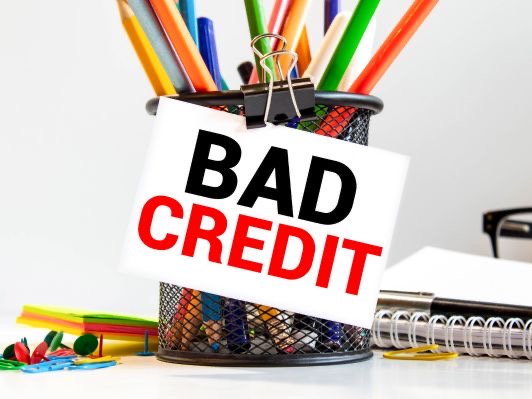Obtaining a loan with bad credit in the UK can feel challenging due to stricter lending criteria and higher interest rates. However, it is not impossible. By understanding the types of loans available, key factors to consider before applying, and strategies to improve your credit score, you can navigate the financial landscape with greater clarity.
This article explores practical tips and essential information about what are bad credit loans, how you can apply for one while managing debt responsibly and improving your financial health over time.
What Are Bad Credit Loans?
Bad credit loans are specialised lending products tailored for individuals with low credit scores or a history of missed payments. Traditional lenders often refuse to extend credit to these borrowers due to their perceived high risk, so these loans fill a vital financial gap. They come in various forms, such as unsecured personal loans, guarantor loans requiring a co-signer, or secured loans backed by an asset like a car.
Interest rates are usually higher, reflecting the increased lending risk. While they offer a lifeline to those who need urgent financial assistance, it is crucial to carefully assess repayment terms to ensure manageable debt and improve your overall credit health.
What is Bad Credit?
Bad credit is a term used to describe a poor credit history, often resulting from missed payments, defaulting on loans, or filing for bankruptcy. In the UK, bad credit can restrict your loan options but doesn’t eliminate your chances of obtaining financial aid. Understanding what constitutes bad credit and how it affects your ability to secure loans is crucial for UK residents in need of borrowing.
How Does Bad Credit Affect Loan Opportunities?
Bad credit significantly impacts your loan opportunities by limiting the number of lenders willing to offer loans and often results in higher interest rates. Mainstream banks might view your financial profile as too risky, pushing you towards alternative lenders specialising in high-risk loans.
Bad credit can also lead to more stringent eligibility criteria, requiring you to provide additional collateral or documentation to secure a loan. This combination of factors makes borrowing more expensive and challenging.
However, understanding how your credit score affects loans empowers you to strategically seek suitable lending options and improve your financial standing over time.
Types of Loans Available for Bad Credit
Several types of loans are available for individuals with bad credit in the UK, each with its own set of criteria and purposes.
1. Secured Loans
Secured loans require collateral, such as a home or car, which the lender can claim if the loan is not repaid. These are typically easier to obtain for those with bad credit because the lender has a fallback option.
2. Unsecured Loans
Unsecured loans do not require collateral but usually have higher interest rates and more stringent credit checks. They are riskier for lenders and therefore harder to obtain with bad credit.
3. Guarantor Loans
Guarantor loans involve a third party, usually a family member or friend, who agrees to repay the loan if you cannot. This type of loan can be easier to secure with bad credit, as the guarantor’s creditworthiness reassures the lender.
4. Payday Loans
Payday loans are short-term, high-interest loans intended for immediate financial needs and should be approached with caution due to their potentially predatory nature and high costs.
Factors to Consider Before Applying for a Loan
Before applying for a loan with bad credit, it’s important to consider several factors to ensure the loan is beneficial and sustainable.
1. Interest Rates and Fees
Understanding interest rates and fees is crucial when considering a loan. Compare multiple lenders to find competitive interest rates, especially with bad credit loans that often carry higher rates. Also, identify any hidden charges, including origination, late payment, or early repayment fees, to ensure your total borrowing cost remains manageable.
2. Loan Terms and Conditions
Examine loan terms carefully to assess repayment flexibility and the impact on your monthly budget. Longer terms may reduce monthly payments but increase the total interest paid. Be aware of conditions like prepayment penalties, as some lenders charge extra for paying off loans early. Read the fine print to avoid costly surprises.
How to Improve Your Credit Score?
Improving your credit score is crucial to accessing better loan terms and more financial opportunities in the future.
1. Checking Your Credit Report
Regularly checking your credit report helps you spot errors or inaccuracies that might be dragging down your score. Review your reports from Experian, Equifax, and TransUnion. If you identify discrepancies, promptly dispute them to have them corrected, ensuring your credit profile accurately reflects your financial history.
2. Strategies to Improve Creditworthiness
To improve your creditworthiness, consistently pay bills on time, reduce outstanding debt balances, and avoid applying for too much new credit. Consider using a secured credit card to build a positive payment history. Gradually, these actions will improve your credit score, opening up better loan opportunities over time.
Final Words
While securing a loan with bad credit in the UK requires extra caution and strategic planning, it is achievable by exploring the right options and adopting prudent debt management strategies. Understanding the variety of loans available, comparing interest rates, and seeking alternatives like credit unions or peer-to-peer lending can lead to favourable outcomes. Coupled with efforts to improve your credit score and seek sound financial advice, you can confidently pursue a loan to meet your needs while paving the way for long-term financial stability.






